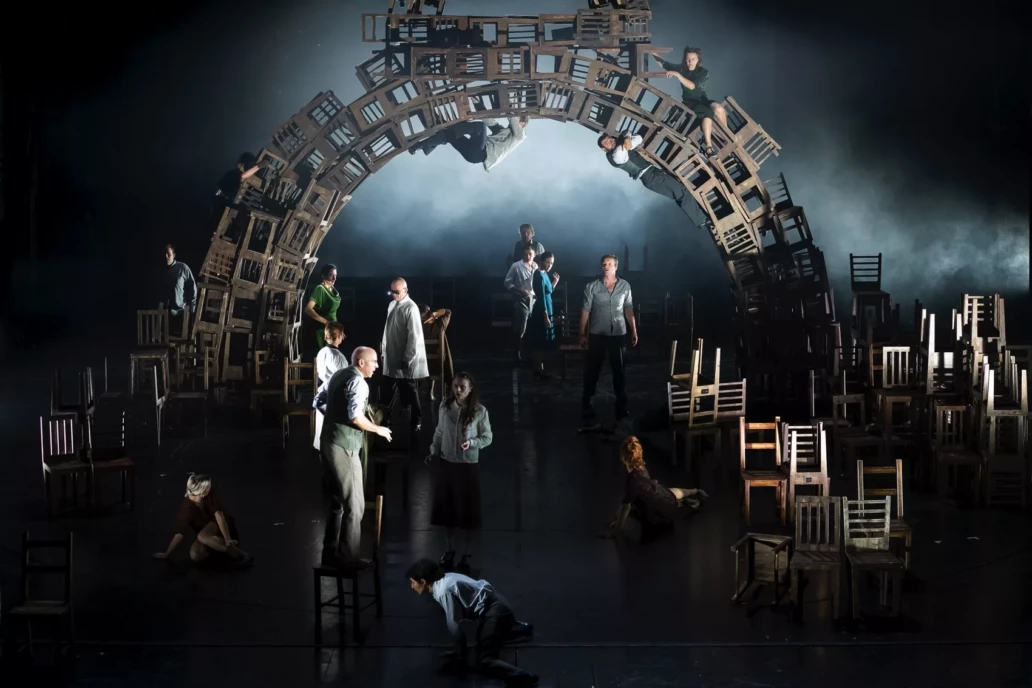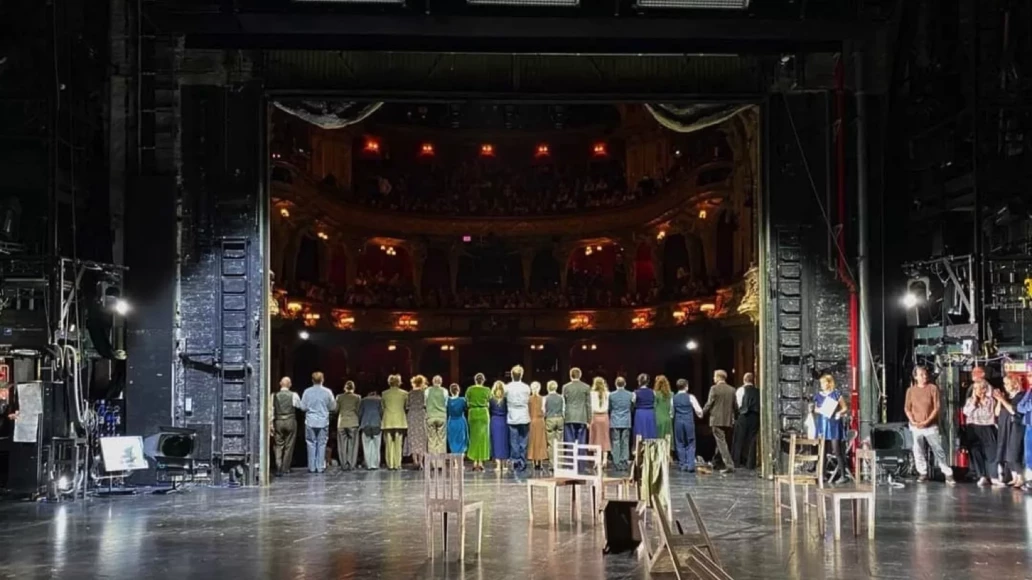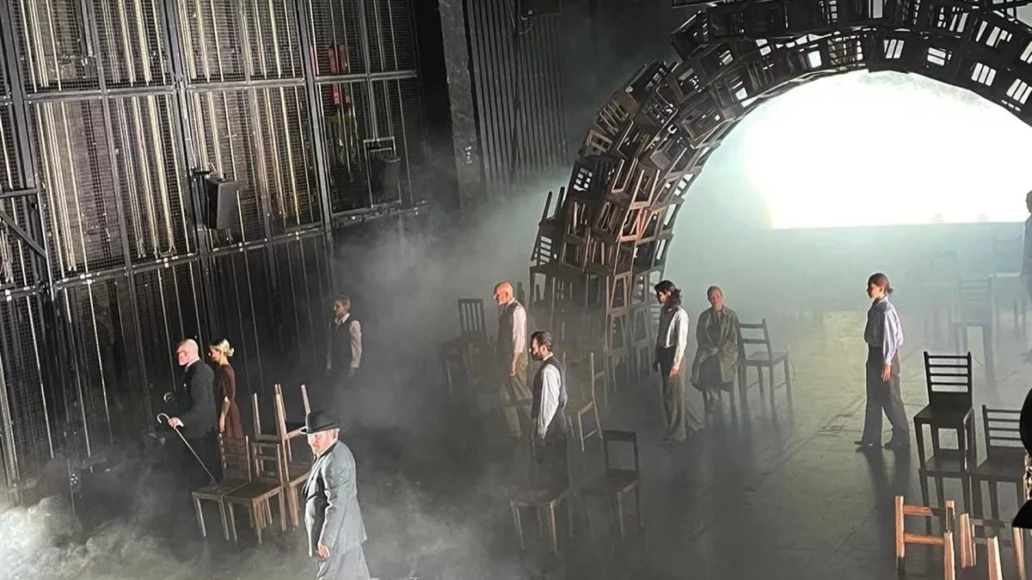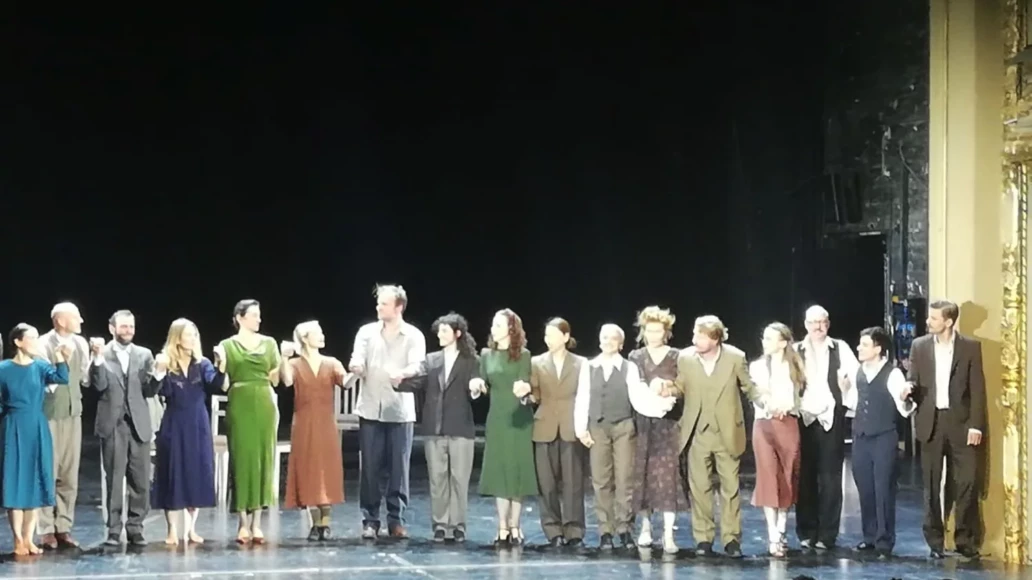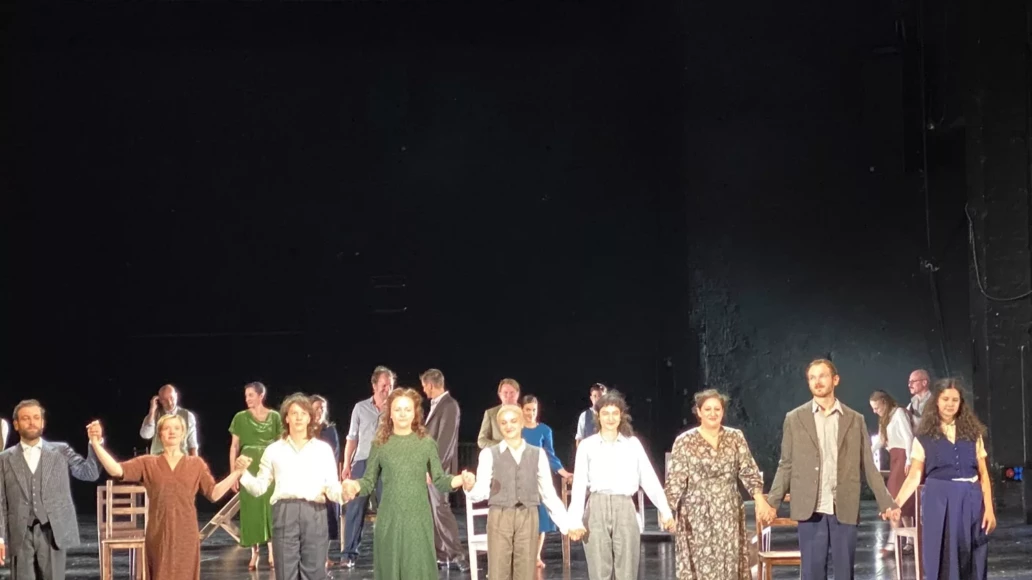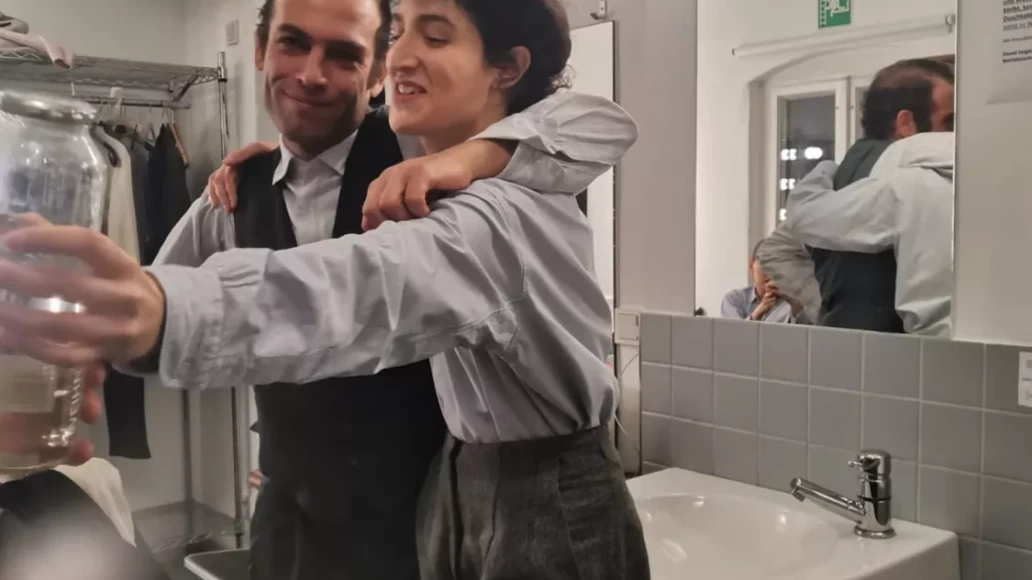EXIL
Movement theater says more than a thousand words. Because we feel it.
PROJECT
On the stage of Berliner Ensemble “EXIL” performs the question of individual actions against a state that undermines civil rights. What does it mean to do “the right thing” in a struggle between work and art, political resistance and opportunism, desire and betrayal?
Lion Fechtwanger wrote “Exile” as the final part of his “Waiting Room Trilogy” between May 1937 and August 1939, shortly before the outbreak of the Second World War. It is set in Paris in 1935, a city that became a place of exile for German refugees.
PARTNERS
Next to the actors, the so-called Movement Choir underlines the story’s intention. The situation of refugees is demonstrated by the body language: The waiting room atmosphere in exile as well as the maniac euphoria while facing the risk of death.
Regie by Luk Perceval, choreografie by Ted Stoffer.
PORTFOLIO
Movement Theatre has been a focus of my study ever since: What the body language is able to say on an emotional level, might be more intense and direct as what spoken word tries to translate onto a cognitive level. I enjoy working in a participatory way and to experiment with movement theater on stage, as an actor as well as in my concept work.


